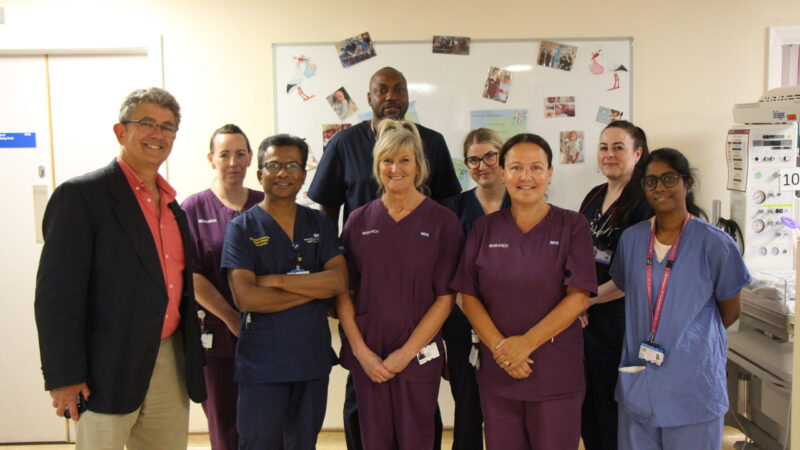
An NHS maternity research team has been praised for the lead role it has played in finding a treatment for a condition affecting pregnant women.
The team at North Tees and Hartlepool NHS Foundation Trust was visited by professor Andrew Weeks who highlighted the service’s role in a national research study he is leading.
The research and maternity team are part of a trial is the effectiveness of two different medication in treating women who experience excessive bleeding after childbirth.
The trust has been one of the leading performers in the COPE study over the last few months – helping recruit the third highest number of women to the trial nationally.
In a visit to the delivery suite at the University Hospital of North Tees, professor Weeks told staff: “You have been one of the lead sites throughout this study – the work you have done is fantastic.
“You have been there right from the very start of this study.
“It is very difficult to recruit to research trials, so what you have done is deserving of recognition.”
Excessive bleeding after childbirth – a condition known as postpartum haemorrhage (PPH) – affects more than one in 20 women.
Comparing two potential treatments
The COPE Study is comparing two drugs currently used to treat PPH, to decide which is better.
Speaking during the visit, Atul Nalawade, consultant in obstetrics and gynaecology and principal investigator for the trial at the trust, said: “Our maternity research team have always been here to support staff with this study and our team here have continuously focused on recruiting too.
“It is thanks to the work they have done that research has become part of the culture in our service.
“I also want to thank our maternity staff and clinicians for their hard as a team to embed research and for their dedication to this study.”
The blinded study is aiming to recruit 2,000 women from NHS hospitals across the country with 21 already recruiting and other hospitals starting soon.
One group of these women will receive oxytocin or a placebo (dummy drug) and the other will receive carboprost or a placebo.
Thank you to all women involved
Sharon Gowans, lead research midwife for the study site at the trust, said: “I not only want thank all of the staff who have helped make our involvement in this study a success but also thank the women who have agreed to be part of it.
“These women have taken the time to have that conversation with us and allow us to talk to them about the benefits of research.
“Without their involvement we wouldn’t be able to make a difference to how we treat health issues like this.”